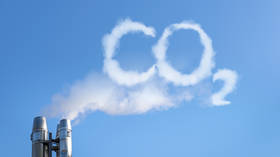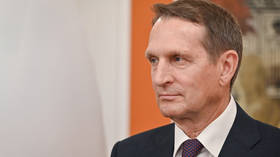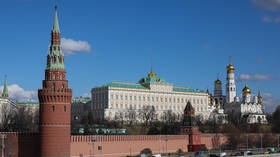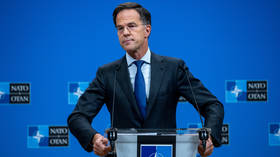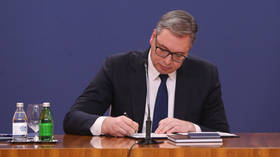UN chief calls for climate 'Marshall Plan'
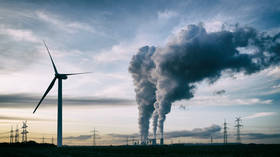
UN Secretary-General Antonio Guterres has called for a moratorium on the use of oil, gas, and coal in favor of renewable energy, arguing that humanity must “end fossil fuel pollution and accelerate the renewable energy transition, before we incinerate our only home” in pre-recorded remarks released on Wednesday to coincide with the State of the Global Climate report by the UN's World Meteorological Organization (WMO).
The WMO warned that four of seven key climate change indicators had reached record highs last year: greenhouse gas concentration, sea level rise, ocean heat, and ocean acidification. The last seven years were the warmest on record, and WMO Secretary-General Petteri Taalas said it was “just a matter of time before we see another warmest year on record.”
Guterres outlined a five-point plan to put the world on track for a renewable energy revolution, suggesting investment in the sector be tripled to a whopping $4 trillion per year and arguing renewables technology should also be treated as “global public goods” rather than intellectual property to be monetized. An international coalition of industry, tech and financial institutions should band together with governments to “fast-track innovation and development,” he said.
Fossil fuels are a “dead end,” Guterres insisted, calling the WMO’s report a “dismal litany of humanity’s failure to tackle climate disruption” and demanding that fossil fuel subsidies have got to go. He pointed to the $11 million that coal, oil and gas industries reportedly receive every minute and exhorted development banks to align their portfolios with the Paris Climate Treaty rather than seek short-term gains through fossil-fuel investments. Renewable energy must become “the peace project of the 21st century,” the UN chief argued, calling renewables “the only path to real energy security, stable power prices and sustainable employment opportunities.”
Despite considerable amounts of resources being poured into the shift to renewable energy, solar and wind still account for just 8% of global electricity generation, while other types of renewables, such as hydropower, bring the total up to 30%. Regulatory “red tape” is also a problem, Guterres complained, noting that it takes eight years to approve a wind-energy project in Europe, while it can take as long as 10 years in the US.
Specific problems related to scaling up renewables – such as a means of storing wind and solar energy to be drawn on when the wind is not blowing and the sun is not shining – have yet to be adequately addressed by the industry. Additionally, the extraction of the raw materials needed for electric car batteries and solar cells, including lithium, copper, silicon, nickel, cobalt, and rare-earth minerals, is environmentally devastating.
As the UN calls for its climate Marshall Plan, the World Economic Forum has been demanding similar actions to put an end to what it calls the “existential threat to the planet.” Suggestions ranging from reducing the cost of public transit and encouraging walking and cycling to reducing highway speed limits by 10km per hour make up the organization’s 10-point Great Reset plan for reducing dependence on fossil fuels.
Wednesday’s report is far from the only climate catastrophe predicted by UN-linked climate organizations. Last week, the UN published a paper warning that upwards of 700 million people could become “climate refugees” by 2030 if worsening water shortages associated with climate change were not addressed.
